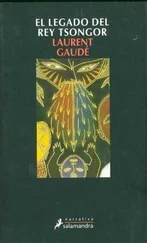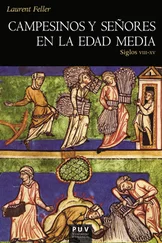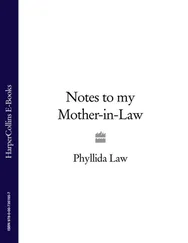*
§10. Anomia . The pre-eminence, in ancient Greece, of the city over the citizens, of the polis over the politès , was not, moreover, a matter of simple chance; it too belongs, if we are to believe Benveniste, to the very structure of the Greek language. In the history of the language’s development, he recalls, the word ‘ politès ’ must be considered a derivation from the word ‘ polis ’ – a direct linguistic consequence of its establishment. From the perspective of language, there is no possible ‘ politès ’ prior to the existence of the polis , because the word ‘ polis ’ is the linguistic kernel of the word ‘ politès ’, which is only the result of its extension. This means that the citizen, in ancient Greece, was supplementary to the City; he was accessory to the essential City; he issued from and depended on the polis , which was ‘necessary and sufficient for defining the politès ’. Without the City, the citizen, beneficiary of the rights it accorded him and recipient of the offices and privileges it bestowed on him, did not exist; he was just a nameless and unattached individual, drifting in a hostile, chaotic and dissolute world. To bring order to the world, and so that the individual could benefit from it, an entity had to exist through which all order was established – because it constituted its primary embodiment. But this entity, Benveniste adds, was embodied ‘in neither a structure, nor an institution, nor an assembly’; it was an ‘abstract body’, existing by itself, independent of men. For the Greeks, the city was the abstract idea of order; the city was nomos ; the city was archè , the principle without which everything was in danger of sinking into anomia , into illegality, which was also disorder – and vice versa. It is, therefore, as the central category in a political ecology based on abstraction and generalization that we should consider the idea of nomos , the Greek invention of ‘Law’, and its defence by the philosophers. This is particularly troubling as the whole juridical culture of the West has chosen to follow them and to make the idea of nomos into a transcendental category serving to articulate its understanding of Right [ droit ]. Just as the pre-eminence of the city over the citizens is still the motto of political vocabulary, so, for juridical vocabulary, the omnipotence of Law remains the most indisputable truth.
§1.– On the contemporary Greek context: Pierre Lévêque, The Greek Adventure, trans. Miriam Kochan (London: Weidenfeld & Nicolson, 1968); Claude Mossé, Histoire d’une démocratie. Athènes, des origines à la conquête macédonienne [History of a Democracy: Athens, From its Origins until the Macedonian Conquest] (Paris: Seuil, 1971); Edmond Lévy, Nouvelle Histoire de l’Antiquité, t. 2, La Grèce au Ve siècle. De Clisthène à Socrate [New History of Antiquity, vol. 2, Fifth-Century Greece: From Cleisthenes to Socrates] (Paris: Seuil, 1995); François Lefèvre, Histoire du monde grec antique [History of the Ancient Greek World] (Paris: LGF, 2007). – On Cleisthenes: Pierre Lévêque et Pierre Vidal-Naquet, Clisthène l’Athénien. Essai sur le représentation de l’espace et du temps en Grèce de la fin du VIe siècle à la mort de Socrate [Cleisthenes the Athenian: Essay on the Representation of Space and Time in Greece from the End of the Sixth Century until the Death of Socrates] (Paris: Macula, 1983). – On the concept of isonomia: Martin Ostwald, Nomos and the Beginnings of Athenian Democracy (Oxford: Clarendon Press, 1969); Jacqueline de Romilly, La Loi dans la pensée grecque, des origines à Aristote [Law in Greek Thought, from the Origin until Aristotle] (Paris: Les Belles Lettres, 1971); Kôjin Karatani, Isonomia and the Origins of Philosophy, trans. Joseph A. Murphy (Durham, NC: Duke University Press, 2017). §2.– On the history of the concept of nomos: Louis Gernet, Recherches sur le développement de la pensée juridique et morale en Grèce. Étude sémantique [Investigations into the Development of Juridical and Moral Thought in Greece. A Semantic Study] (Paris: Ernest Leroux, 1917); Marcello Gigante, Nomos Basileus (Naples: Glaux, 1956); Martin Ostwald, Nomos and the Beginnings of Athenian Democracy, op. cit.; Jacqueline de Romilly, La Loi dans la pensée grecque, des origines à Aristote, op. cit. – On Solon: Werner Jaeger, Paideia: The Ideals of Greek Culture. Vol. I. Archaic Greece: The Mind of Athens (1933–1947), trans. Gilbert Highet (Oxford: Oxford University Press, 1986); Moses I. Finley, Economy and Society in Ancient Greece (1953) (London: Chatto & Windus, 1981); Louis Gernet, Droit et société en Grèce ancienne [Right and Society in Ancient Greece] (Paris: Sirey, 1955); Claude Mossé, ‘Comment s’élabore un mythe politique: Solon, “Père fondateur de la démocratie athénienne”’ [‘How to Create a Political Myth: Solon, “Founding Father of Athenian Democracy”’], Annales 54 (1979), pp. 425–437; John D. Lewis, Solon the Thinker. Political Thought in Archaic Athens (London: Bloomsbury, 2008). – On the root *dhè–: Émile Benveniste, Dictionary of Indo-European Concepts and Society, trans. Elizabeth Palmer (Chicago: HAU Books, 2016). §3.– On the rhêtra: Jacqueline de Romilly, La Loi dans la pensée grecque, des origines à Aristote, op. cit.; Françoise Ruzé, ‘Le conseil et l’assemblée dans le grande rhètra de Sparte’ [‘The Council and the Assembly in the Spartan Great Rhetra’], Revue d’études grecques 104/1 (1991), pp. 15–30; Edmond Lévy, ‘La grande Rhêtra’, Ktèma 2 (1997), pp. 85–103; Id., Sparte. Histoire politique et sociale jusqu’à la conquête romaine [Sparta: Political and Social History until the Roman Conquest] (Paris: Seuil, 2003); Jacqueline Christien et Françoise Ruzé, Sparte. Histoire, mythes, géographie [Sparta: History, Myths, Geography] (Paris: Armand Colin, 2017), 2nd edn. §4.– On the root *nem–: Émile Benveniste, Dictionary of Indo-European Concepts and Society, op. cit. – On the connections between nomos and democracy: Martin Ostwald, Nomos and the Beginnings of Athenian Democracy, op. cit.; Moses I. Finley, Politics in the Ancient World (Cambridge: Cambridge University Press, 1983); Richard Garner, Law and Society in Classical Athens (London: Croom Helm, 1987); Mogens H. Hansen, The Athenian Democracy in the Age of Demosthenes: Structure, Principles, and Ideology, trans. J. A. Crook (Norman: University of Oklahoma Press, 1999); Claude Mossé, Au Nom de la loi. Justice et politique à Athènes à l’âge classique [In the Name of the Law: Justice and Politics in Classical Athens] (Paris: Payot, 2010). §5.– On the connections between nomos and philosophy: Jacqueline de Romilly, La Loi dans la pensée grecque, des origines à Aristote, op. cit.; Pierre Aubenque, ‘La loi chez Aristote’ [‘Law in Aristotle’], Archives de philosophie du droit 25 (1980), pp. 147–157; Kôjin Karatani, Isonomia and the Origins of Philosophy, op. cit. §6.– On Heraclitus and nomos: Pierre Guérin, L’Idée de justice dans la conception de l’univers des premiers philosophes grecs, de Thalès à Héraclite [The Idea of Justice in the First Greek Philosophers’ Conception of the Universe, from Thales to Heraclitus] (Paris: Alcan, 1934); Jacqueline de Romilly, La Loi dans la pensée grecque, des origines à Aristote, op. cit. §7.– On the development of Greek Right: Louis Gernet, The Anthropology of Ancient Greece, trans. John Hamilton and Blaise Nagy (Baltimore, MD: Johns Hopkins University Press, 1981); Douglas M. MacDowell, The Law in Classical Athens (London: Thames & Hudson, 1978); Michael Gagarin, Early Greek Law (Berkeley: University of California Press, 1986). – On the concept of the polis: Mogens H. Hansen, Polis and City-state: An Ancient Concept and its Modern Equivalent. Symposium, January 9, 1998 (Copenhagen: Munksgaard, 1998); Id., Polis: An Introduction to the Ancient Greek City-state (Oxford: Oxford University Press, 2006). §8.– On the root *ar–: Émile Benveniste, Dictionary of Indo-European Concepts and Society, op. cit. – On thémis and dikè: Gustave Glotz, La Solidarité de la famille dans le droit criminel en Grèce [Family Solidarity in Criminal Right in Greece] (Paris: Albert Fontemoing, 1904); Michael Gagarin, ‘Dikè in the Works and Days’, Classical Philology 68 (1973), pp. 81–94; Id., ‘Dikè in Archaic Greek Thought’, Classical Philology 69 (1974), pp. 186–197; Eric A. Havelock, The Greek Concept of Justice, from its Shadow in Homer to its Substance in Plato (Cambridge: Harvard University Press, 1978); Marcel Detienne, ‘Religions de la Grèce ancienne’ [‘Religions of Ancient Greece’] École pratique des hautes études. Section des sciences religieuses. Annuaire 99 (1990–1), pp. 243–246; Jean Rudhardt, Thémis et les Hôrai. Recherches sur les divinités grecques de la justice et de la paix [Thémis and the Horae: Investigations into the Greek Gods of Justice and Peace] (Geneva: Droz, 1999); Pierre Judet de la Combe and Barbara Cassin, ‘Thémis’, Vocabulaire européen des philosophes [European Dictionary of Philosophers], under the direction of Barbara Cassin (Paris: Seuil/Le Robert, 2004) pp. 1291–1296. §9.– On phusis and the Sophists: Felix Heinimann, Nomos und Physis. Herkunft und Bedeutung einer Antithese im griechischen Denken des 5. Jahrhunderts (1945) (Basel: Friedrich Reinhardt, 1965); Mario Untersteiner, The Sophists, trans. Kathleen Freeman (Oxford: Basil Blackwell, 1954); George B. Kerferd, The Sophistic Movement (Cambridge: Cambridge University Press, 1981); Jacqueline de Romilly, The Great Sophists in Periclean Athens, trans. Janet Lloyd (Oxford: Clarendon Press, 1992); Gérard Naddaf, L’Origine et l’évolution du concept grec de phusis [The Origin and Development of the Greek Concept of Phusis] (Lewiston: Edwin Mellen, 1992); Barbara Cassin, L’Effet sophistique [The Sophistic Effect] (Paris: Gallimard, 1995). §10.– On politès: Émile Benveniste, ‘Two Linguistic Models of the City’, in Problems in General Linguistics, trans. Mary Elizabeth Meek (Coral Gables, FA: University of Miami Press, 1971).
Читать дальше












